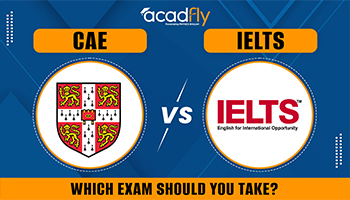

Studying abroad is a dream for many Indian students, and Denmark is emerging as a popular destination due to its high-quality education system and diverse opportunities. However, pursuing higher education in Denmark can be financially demanding. Thankfully, there are numerous scholarships and financial aid options available for Indian students. This comprehensive guide will explore various scholarships, financial aid opportunities, and funding sources that can help ease the financial burden of studying in Denmark.
Understanding the Cost of Education in Denmark
Before delving into scholarships and financial aid, it's important to understand the cost of education in Denmark. Tuition fees for non-EU/EEA students can range from DKK 6,000 to DKK 16,000 per year, depending on the institution and the program. Additionally, living expenses, including accommodation, food, and transportation, can add up to DKK 6,000 to DKK 8,000 per month.
Types of Financial Aid Available
Financial aid helps students pay for education and comes in several forms. Common types include scholarships, which are awards based on merit or need; grants, which are typically need-based and do not require repayment; and loans, which must be repaid with interest.
1. Scholarships for Indian Students in Denmark
Scholarships are one of the most sought-after financial aid options. They can significantly reduce the overall cost of studying abroad. Scholarships for Indian students in Denmark are available through various sources, including Danish universities, government agencies, and private organizations.
University Scholarships
Many Danish universities offer scholarships specifically for international students. These scholarships can cover partial or full tuition fees and sometimes include living stipends. Here are some notable scholarships:
-
Danish Government Scholarships: The Danish Ministry of Education provides scholarships for highly qualified students from non-EU/EEA countries. These scholarships are often awarded based on academic merit.
-
University-Specific Scholarships: Universities like the University of Copenhagen, Aarhus University, and Technical University of Denmark offer scholarships for international students. These scholarships vary in amount and eligibility criteria.
Private and Non-Governmental Scholarships
In addition to university scholarships, there are several private and non-governmental scholarships available for Indian students. Organizations like the Danish-Indian Chamber of Commerce and various foundations offer scholarships to support Indian students pursuing higher education in Denmark.
2. Denmark Student Financial Aid
Denmark provides various forms of student financial aid to help cover the costs of education and living expenses. These aids are generally aimed at EU/EEA students but can sometimes be available for non-EU/EEA students under specific conditions.
SU (Statens Uddannelsesstøtte)
The SU is Denmark's national student grant scheme. It provides financial support to students who are studying at Danish universities. While SU is primarily available for Danish and EU/EEA students, international students may be eligible if they meet certain criteria, such as being a Danish resident or having special circumstances.
Student Loans
Danish banks and financial institutions offer student loans that can be used to cover tuition fees and living expenses. These loans often have favorable terms for international students, including low interest rates and flexible repayment plans.
3. Study Grants for Indians in Denmark
Study grants are a form of financial support that can be used to cover various expenses related to education. These grants are often awarded based on academic achievement, financial need, or specific criteria set by the grant provider.
Government Grants
The Danish government occasionally offers study grants for international students. These grants are typically competitive and require students to demonstrate exceptional academic performance or financial need.
University Grants
In addition to scholarships, some Danish universities offer study grants to international students. These grants can help cover tuition fees and living expenses and are often awarded based on academic merit or financial need.
4. Financial Support for Indian Students in Denmark
Financial support can come from various sources, including governmental and non-governmental organizations, as well as private institutions.
Governmental Support
The Danish government provides financial support through various schemes and programs. While many of these programs are targeted at Danish and EU/EEA students, some are available to international students who meet specific eligibility criteria.
Non-Governmental Organizations
Various non-governmental organizations, both in Denmark and India, offer financial support to Indian students. These organizations may provide scholarships, grants, or loans to help students cover their educational expenses.
5. Denmark Education Funding for Indians
Education funding encompasses all financial resources available to support students in their educational pursuits. For Indian students in Denmark, this includes scholarships, grants, loans, and other forms of financial aid.
Funding Opportunities through Danish Universities
Many Danish universities have established partnerships with Indian institutions and organizations to offer funding opportunities. These partnerships often result in joint scholarship programs and financial aid initiatives aimed at Indian students.
Collaborative Programs with Indian Organizations
Some Indian organizations collaborate with Danish institutions to provide funding for Indian students. These programs can include scholarships, research grants, and other forms of financial support.
How to Apply for Scholarships and Financial Aid
Applying for scholarships and financial aid involves researching available opportunities, meeting eligibility criteria, and submitting required documents such as applications, essays, and financial statements. Start by checking with your school's financial aid office and search for external scholarships that match your profile and needs.
Application Process for University Scholarships
-
Research: Begin by researching the scholarships offered by Danish universities. Check their official websites and contact their international student offices for detailed information.
-
Prepare Documents: Gather necessary documents such as academic transcripts, letters of recommendation, and proof of financial need. Ensure that all documents are translated into English if required.
-
Submit Applications: Follow the application procedures outlined by the university. Submit your application before the deadlines and ensure that all required documents are included.
Applying for Government and Private Grants
-
Identify Grants: Look for available grants from the Danish government and private organizations. Check their eligibility criteria and application requirements.
-
Prepare a Strong Application: Craft a compelling application that highlights your academic achievements, financial need, and future goals.
-
Submit Applications: Adhere to the submission guidelines and deadlines for each grant application.
Frequently Asked Questions
1. What are the main scholarships available for Indian students in Denmark?
2. Can Indian students apply for financial aid from the Danish government?
3. What are the eligibility criteria for scholarships for Indian students in Denmark?
4. How can Indian students find study grants in Denmark?
5. What other financial support options are available for Indian students studying in Denmark?









